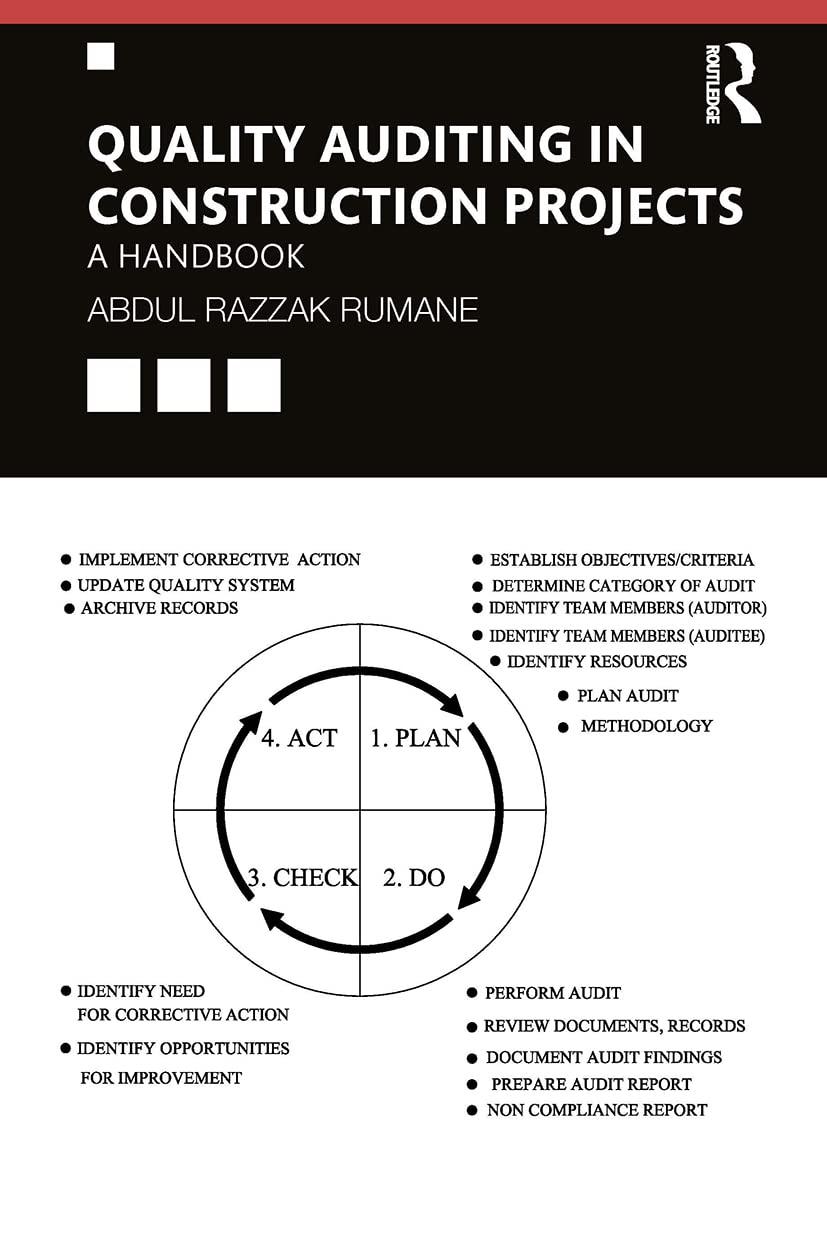Question
A variety of control activities are performed to check the accuracy, completeness, validity and authorization of transactions. Authorization of transactions can be general or specific.
A variety of control activities are performed to check the accuracy, completeness, validity and authorization of transactions. Authorization of transactions can be general or specific. General authorization occurs when management establishes criteria for acceptance of a certain type of transaction such as general price lists and credit policies for customers. Specific authorization occurs when transactions are authorized on a specific basis. For example, top management may consider individually and authorize any sales transaction in excess of a specified amount. Another fundamental concept of internal control is segregation of duties. No one department or person should handle all aspects of a transaction from beginning to end. With these control activities in mind, consider the following case of Dennis Kozlowski and Tyco.
Dennis Kozlowski was sentenced to 25 years in prison for misappropriation of hundreds of millions of dollars from Tyco. The theft centered around a loan program that was instituted by Tyco to allow executives who had been granted restricted stock awards to borrow money at low interest rates to pay the taxes on the stock awards to encourage them not to sell the stock since these particular awards became taxable when vested even when if stock was not sold.
People familiar with the program and Kozlowski claimed that he treated the program as if it were a charge account. He repaid most of the loans at a later date, either by turning in restricted stock he had been granted, or by exercising options and signing over the stock to Tyco. At one point in fiscal 1999, Tyco's regulatory filings showed, Mr. Kozlowski owed the company $52.7 million under the stock-loan program. By the end of that year, the remaining loan balance was zero. Although Mr. Kozlowski repaid some of that sum, people familiar with the company say $25 million in loans to the Tyco chief were simply wiped off the books at Mr. Kozlowski's direction in fiscal 1999, again without board approval. These people say there was no evidence that Tyco included the forgiveness of the $25 million in Mr. Kozlowski's W-2 tax form, either.
In fiscal 2000, Tyco offered up a "special bonus" program -- approved by Mr. Kozlowski -- under which he and some other loan recipients saw their borrowings wiped off the books, people investigating the company say. Tyco also covered taxes due on the forgiven loans, which were recorded as income to the loan recipients. The special bonus program amounted to nearly $100 million in total, of which Mr. Kozlowski received about one-third. The bonus plan seemed to have been treated as a secret inside the company. Staffers were required to sign written agreements not to disclose the size of their "bonuses," even to each other, according to a person close to the situation.
Kozlowski maintained his innocence during the trial, stating that he never tried to hide anything from anyone. The case centered on whether the defendants had received board approval for the multimillion dollar "bonuses" between 1999 and 2001. The defendants testified that a now-deceased director had verbally given the nod, but prosecutors pointed out that not a single piece of paper backed up that tale. A number of former Tyco directors took the stand to swear that they hadn't approved the payments. "There is not a single piece of paper from the compensation committee showing they were authorized to take that money," Assistant District Attorney Owen Heimer said as part of the prosecution's closing arguments.
Do you believe Kozlowski when he says that he was innocent? Using the information above concerning internal controls, describe authorization and segregation of duty controls that might have been implemented in regards to the loans and bonus programs that might have prevented the misappropriation of funds by Kozlowski and other executives.
Source M. Maremont and L. Cohen, Tyco Spent Millions for Benefit of Kozlowski, Its Former CEO, The Wall Street Journal, August 7, 2002. M. Maremont, Kozlowski, Swartz Are Found Guilty in Tyco Retrial, The Wall Street Journal, June 17, 2005.
Step by Step Solution
There are 3 Steps involved in it
Step: 1

Get Instant Access to Expert-Tailored Solutions
See step-by-step solutions with expert insights and AI powered tools for academic success
Step: 2

Step: 3

Ace Your Homework with AI
Get the answers you need in no time with our AI-driven, step-by-step assistance
Get Started


